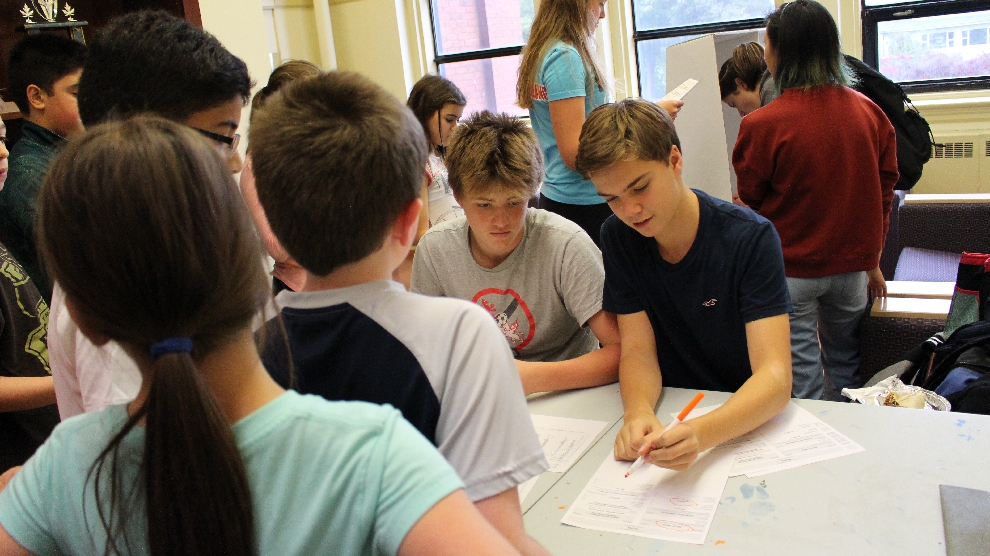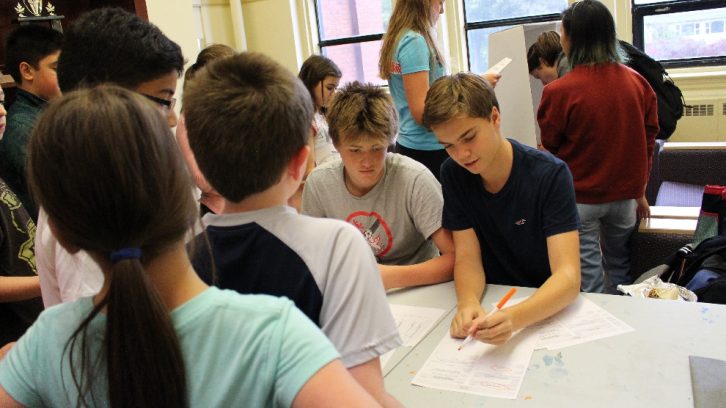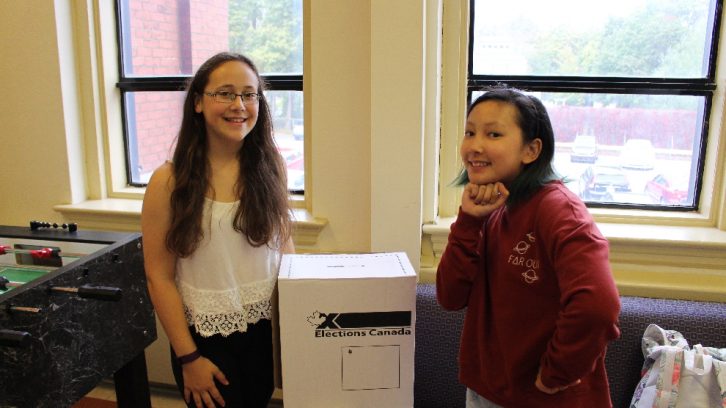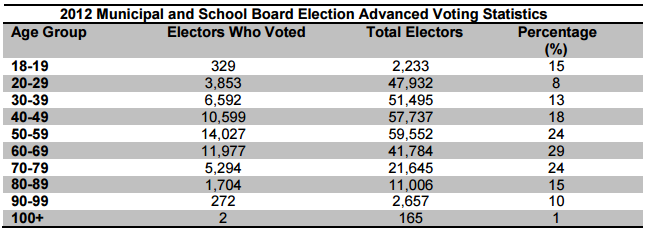HRM Votes
N.S. teens vote in mock municipal election
‘Kids tend to be more left wing. A little more optimistic, thank goodness’

caption
Grade 9 student council representatives Andrew Gillis (left) and Matthew Fraser run the polling station at the mock elecion.
caption
Grade 9 student council representatives Andrew Gillis, left, and Matthew Fraser run the polling station at the mock elecion.Lara Jollimore-Behie is only 13-years-old, but she’s no stranger to the electoral process.
On Friday, she cast her ballot in the mock municipal election at Halifax Grammar School, where she is a Grade 8 student.
“I think it’s cool to be able to vote,” says Jollimore-Behie. “And it also prepares us for when we get older, so we know how voting works before we can do it for real.”
The vote was organized by Student Vote, a program run by Elections Canada that organizes mock elections in elementary and secondary schools while real elections are underway.
At the Grammar School, students voted for mayor, a school board representative and a district councillor. They used ballots that looked like the ones issued at the real polls on Saturday.
“We don’t want them to emerge from high school not knowing how we elect our prime minister or why it’s important to participate in the electoral process,” says Angela McKegney, coordinator of the Grammar School’s Halifax Votes program and a social studies teacher.
“That engagement of young people in the political process early on, I think, makes them more apt to be politically minded, to take an interest in the society and how government functions.”

caption
Lara Jollimore-Behie, left, and Sylvia Mok voted in the municipal mock election.Dan Allan, research and communications manager for Student Vote, says low voter turnout is especially pronounced in young people during municipal elections.
“The goal of this program is just to get younger people engaged at a younger age so when they are 18 and they can vote … they carry that habit forward with them the rest of their lives.”

McKegney takes this a step further. She has her Grade 6 students hold a mock election every year, in which they make up their own political parties and platforms, and campaign and vote on them.
“It makes them more informed, and when they hear things on the radio about government, they’ll often bring them up to me in class.”
Jollimore-Behie says she knew little about politics before going into Grade 6, but when they held the mock election, “it was really exciting.”
“I’m interested in (politics) because it’s just good for us to know about it so we can help create a better environment,” she says.”
McKegney predicts the students’ votes will be in line with the real electorate, only a little “more left wing. A little more optimistic, thank goodness.”
Results from the mock election will be accessible on the Student Vote website after 7 p.m., when polls close for today’s election.

